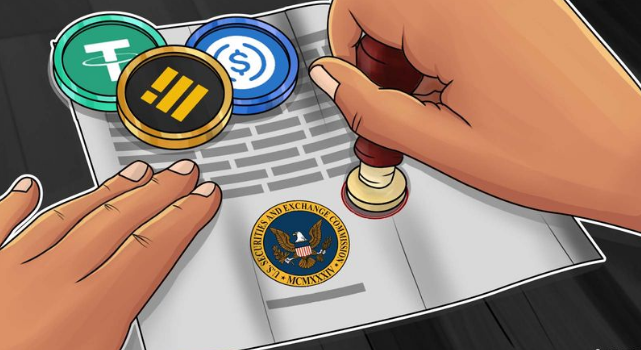Crypto regulation took heart stage as Republican lawmakers launched a draft invoice on Friday. Spearheaded by influential Republican members, Reps. Patrick McHenry and Glenn Thompson, the invoice outlines their proposed framework for regulating digital property.
Whereas topic to revisions within the coming weeks and months, this draft invoice carries important weight in shaping the way forward for crypto regulation.
A pivotal side of the invoice includes establishing a transparent division of tasks between the highest two US monetary regulators — the Securities and Alternate Fee (SEC) and the Commodity Futures Buying and selling Fee (CFTC).
The draft invoice gives insights into how the committee chairs envision the distribution of regulatory authority between these businesses. This division goals to create a complete and cohesive regulatory framework for the trade.
Crypto Regulatory Challenges: Division Of Authority
McHenry, chair of the Home Committee on Monetary Providers, and Thompson, chair of the Home Committee on Agriculture, categorical their issues concerning the present regulatory pointers surrounding digital currencies.
In keeping with the draft summary, they consider that these pointers hinder innovation and fail to offer enough client safety.
The dialogue draft introduces a transparent division of regulatory authority between the 2 main US monetary regulators in what the trade likes to confer with as a turf war.
Below the proposed invoice, the CFTC can be granted specific authority over digital foreign money commodities within the spot market, in accordance with present regulation. Then again, the SEC can be chargeable for regulating digital-asset securities.
BTCUSD barely breaches the $27Okay degree on the weekend chart: TradingView.com
The draft invoice consists of provisions that purpose to boost market accessibility and adaptability. It explicitly prohibits the SEC from stopping another buying and selling system (ATS) from itemizing crypto securities.
Moreover, it requires the SEC to switch its guidelines to allow broker-dealers to offer custody companies for digital property. These measures intend to create a extra favorable setting for market contributors and promote elevated effectivity within the crypto house.

Picture: BSC Information
Future Implications
Within the aftermath of in depth enforcement actions which have prompted crypto corporations and builders to relocate operations outdoors america, crypto exchanges have been urging for regulatory clarity.
Whereas the draft invoice launched by McHenry and Thompson continues to be topic to potential amendments and revisions, its proposal demonstrates a dedication to rectifying the present regulatory deficiencies surrounding cryptocurrencies.
By addressing these shortcomings, the invoice has the potential to stimulate innovation, bolster client safety, and set up extra clear pointers for market contributors working within the crypto sphere.
Constructive Preliminary Business Response
Though the draft invoice has not but reached the formal introduction stage within the legislative course of, the trade’s preliminary reception on Friday afternoon was largely constructive.
Market contributors and crypto exchanges welcomed the potential for higher regulatory readability, which might provide stability, facilitate compliance, and encourage continued development and improvement throughout the crypto sector.
-Featured picture from Shelly Palmer





More NFT News
El Salvador Boosts Bitcoin Purchases After IMF Settlement
No, BlackRock Can't Change Bitcoin
Canine Memecoins Rebound as Bitcoin Reaches $98,000